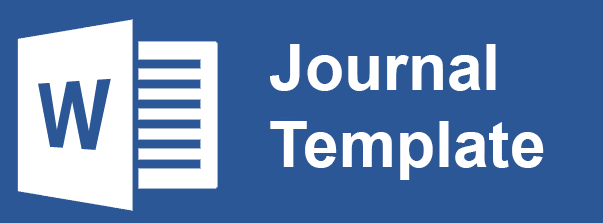- Focus and Scope
- Section Policies
- Peer Review Process
- Publication Frequency
- Open Access Policy
- Archiving
- Publication Ethics
- Publishing System
- Indexing
Focus and Scope
Wahana Pendidikan is a high-quality open access peer-reviewed research journal published by the Teaching and Education Faculty of Galuh University (UNIGAL). Wahana Pendidikan provides a platform that welcomes and recognizes high-quality original empirical research articles on education written by researchers, academics, professionals and practitioners from around the world.
Section Policies
Articles
Vol 6, No 1 (2019)
Peer Review Process
All submitted manuscripts are read by the editorial staff. The review proccess uses double blind review system. Those manuscripts evaluated by editors to be inappropriate to journal criteria are rejected promptly without external review. Manuscripts evaluated to be of potential interest to our readership are sent to reviewers. The editors then make a decision based on the reviewer’s recommendation from among several possibilities: rejected, require major revision, need minor revision, or accepted.
Publication Frequency
Wahana Pendidikan Journal published in January and August
Open Access Policy
The journal provides immediate open access to its content on the principle that making research freely available to the public supports the broader global exchange of knowledge.
This journal is an open access journal which means all content is freely available at no cost to users or/institutions. Users are permitted to read, download, copy, distribute, print, search, or link to full-text articles in this journal without seeking prior permission from the publisher or author. This is in accordance with the Budapest Open Access Initiative-BOAI, 2002.
Archiving
Jurnal Wahana Pendidikan uses the LOCKSS system to create a distributed archiving system among participating libraries and permits those libraries to create permanent archives of the journal for purposes of preservation and restoration. More...
Publication Ethics
Our ethics statement is based on the COPE Best Practices Guidelines for Journal Editors.Keputusan publikasi
Editors are responsible for deciding which articles submitted to a journal should be published.
Fair play
Confidentiality
The editor and any editorial staff should not disclose any information about a submitted manuscript to anyone other than the corresponding author, reviewers, potential reviewers, other editorial advisors, and the publisher, as appropriate.Pengungkapan dan konflik kepentingan
Unpublished material disclosed in a submitted manuscript may not be used in the editor's own research without the written consent of the author.
Reviewer Duties
Contribution to Editorial Decisions
Peer review helps editors in making editorial decisions and through editorial communication with authors can also assist authors in improving articles.
Speed
Any selected reviewer who feels unqualified to review the research reported in a manuscript or knows that prompt review is not possible should notify the editor and excuse himself from the review process.
Confidentiality
Any manuscript received for review must be treated as a confidential document. They may not be shown or discussed with others except as permitted by the editor.
Objectivity Standards
The review must be conducted objectively. Personal criticism of the author is inappropriate. Referees must express their views clearly with supporting arguments.
Source Acknowledgment
Reviewers should identify relevant published work that has not been cited by the author. Any statement that an observation, derivation, or argument has been reported previously should be accompanied by relevant citations. Reviewers should also draw the editor's attention to substantial similarities or overlap between the manuscript under consideration and any other published papers of which they have personal knowledge.
Disclosure and Conflicts of Interest
Privileged information or ideas obtained through peer review must be kept confidential and not used for personal gain. Reviewers should not consider manuscripts in which they have a conflict of interest arising from competitive, collaborative, or other relationships or connections with any author, company, or institution connected to the paper.
Writer's Duties
Reporting standards
The author of an original research report must present an accurate account of the work performed as well as an objective discussion of its significance. The underlying data must be represented accurately in the paper. An article must contain enough detail and references to allow others to replicate the work. False or intentionally inaccurate statements are unethical and unacceptable behavior.
Originality and Plagiarism
Authors should ensure that they have written entirely original work, and if authors have used the work and/or words of others that these have been appropriately cited or cited. The maximum plagiarism limit is 20%.
Multiple, Redundant, or Concurrent Publication
Source Acknowledgment
Paper Wreath
Disclosure and Conflicts of Interest
Fundamental errors in published work
When an author discovers significant errors or inaccuracies in his self-published work, it is the author's obligation to immediately notify the journal editor or publisher and work with the editor to retract or correct the article.
Publishing System
This journal uses Open Journal Systems 2.4.8.1, which is open source software for journal management and publishing developed, supported and freely distributed by Public Knowledge Project under the GNU General Public License.
Indexing
Jurnal Wahana PendidikanIt has been indexed by Sinta, Dimension, Google Scholar, Garuda, and others.




